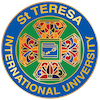About The Faculty of Education
Established newly in 2013 under the recommendation and supervision of the Teacher Council of Thailand, the Faculty of Education has been founded with the goal of offering opportunities to students in professional development that emphasizes on advanced teaching practices, improved learning experiences and progressive research efforts. Our small student-to-faculty ratio means that you shall have unprecedented opportunity for one-on-one collaborations with our excellent faculty, all of whom are dedicated to your success.
We offer a Bachelors and a Masters program in Education, both of which shall prepare students for a range of education settings and specializations.
Our Bachelors in Education programs provide new teachers with the essential knowledge and skills needed to address the ever-changing teaching and learning environment. Students can choose majors in Mathematics, English and Science.
Our Masters of Education program exposes students to the art of Educational Administration where they will tackle on the issues of modern day educational institutes. Upon completion of the program, you will be ready to contribute to the evolution of education.
Approved and accredited by Thailand’s Ministry of Education, St. Theresa International College is proud to be the only institute to offer the International Graduate Diploma Program in Teaching Profession. The program exposes students to the many aspects of Thailand’s Educational System. Successful completion of the program means that you shall be an accredited schoolteacher that is fully licensed to teach in the Kingdom of Thailand.
Beyond the classroom, STIC is part of the community. We regularly host community-centered educational seminars and events where we bring together the College and the local districts in order to act on the shared goals of ASEAN community.


